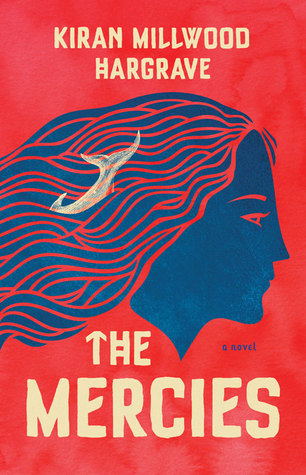Kiran Millwood Hargrave’s novel, The Mercies (2020), is a vivid, sapphic, historical novel that I couldn’t bear to put down. I read this book in nearly one sitting and its dark, passionate story will likely have you doing the same. Hargrave’s novel is starts in Finnmark, Norway, in 1617. It follows twenty-year-old Maren Bergensdatter asRead More
Carmella reviews The Mercies by Kiran Millwood Hargrave
Set in 17th century Norway during a time of witch trials, The Mercies is Kiran Millwood Hargrave’s first book for adults. It was all over book Twitter earlier this year, and the more I heard, the more excited I was to read it. Beautiful cover? Check. Witches? Check. Sapphism? Check. What more could I wantRead More
